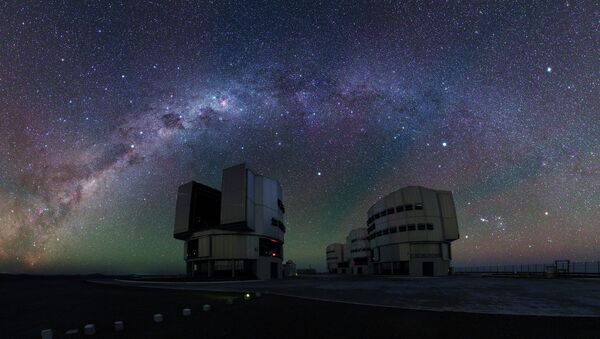EDINBURGH (Sputnik), Mark Hirst – Using powerful radio telescopes to broadcast "greetings messages" into space will not result in an alien invasion, a chief scientist at the Search for Extraterrestrial Intelligence (SETI) Institute in California told Sputnik Friday.
The project has been criticized though, due to the perceived risk of revealing the Earth's location to alien civilizations, without prior international consultation.
"In reality, any civilization that can travel between the stars can already pick up the radio and TV signals that are accidentally leaking off into space, so Active SETI poses no additional risks," Dr. Douglas A. Vakoch, Director of the Interstellar Message Composition program, told Sputnik on behalf of the SETI Institute.
"If we can come to understand the messages of an independently evolved civilization, if we can get a glimpse into how they experience their worlds, we will have a mirror to hold up to ourselves, giving us a deeper appreciation of what makes us distinctively human," Vakoch added.
Asked by Sputnik what the consequences might be for some of the world's major religions should scientists begin communicating with extraterrestrials, Vakoch, an advocate for "Active SETI" said, "Sometimes people worry that if we discover other intelligent life out there, somehow we will no longer be unique. But just the opposite is true. The more we come to know about the universe and its inhabitants, the better we will appreciate what it means to be human."
Professor Stephen Hawking, the Cambridge University physicist previously warned that transmitting to alien civilizations could result in the same fate that befell Native Americans when Europeans first settled North America.
Vakoch dismissed Hawking's concerns and told Sputnik, "As we anticipate first contact with an alien civilization, our imagination takes us to the extremes of hope and fear."
In May 1999, Russian scientists, led by Dr. Alexander Zaitsev of the Russian Academy of Sciences, using the Yevpatoria RT-70 radio telescope in Crimea sent one of the first deliberate interstellar radio messages, Cosmic Call 1, to various nearby stars. There was no measurable response.




